Pictures on this page were captured on the spanish mediterrranean coast in Moraira.
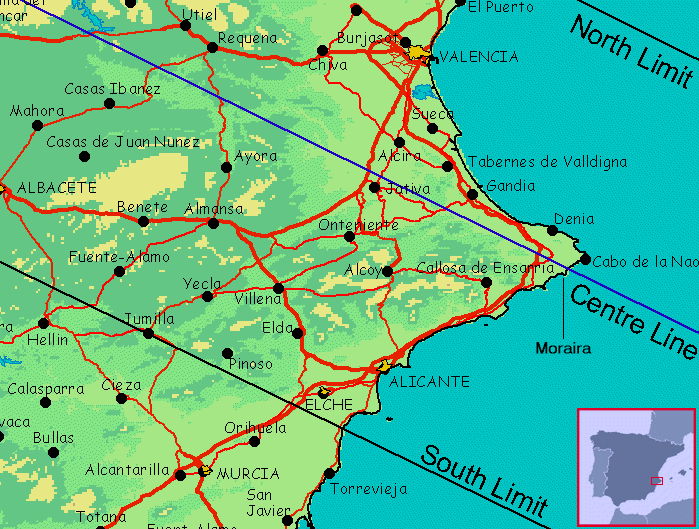
The observation of this eclipse had badly started. The beach of Moraig we had initially chosen for observation, was located at the southern limit of a thick cloudy layer. This layer was stationary in spite of the north wind. After the first contact is missed at 7H42 UT, we quickly decide to leave Moraig beach and drive 5 kilometers southward, in order to settle in Moraira.
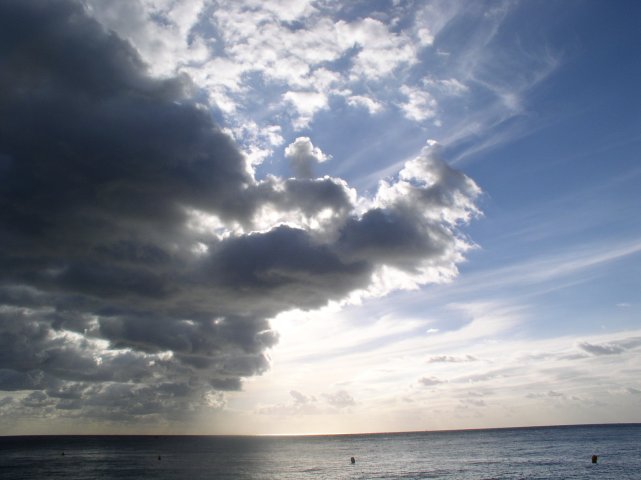 |
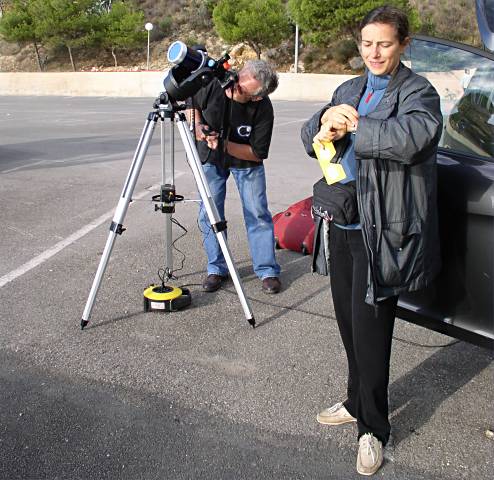 |
In front of the beach of Moraira, the sky is perfectly clear. We can finally start to observe and photograph the eclipse with a small group of observers from different countries. (In the picture background you can see the point of Moraira and the cloudy layer which forced us to leave Moraig beach !)
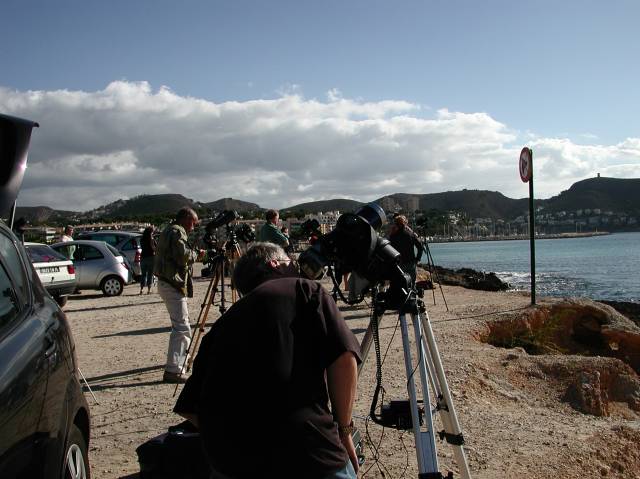 |
The equipment is quickly installed and the first image of the eclipse is taken at 8H18 UT. CANON EOS300D at the prime focus of a MEADE ETX90 telescope equipped with a solar glass filter 1/100 000. Exposure time is 1/50th second at 100 ISO. Increasing gusts of wind will force me thereafter to select 200 ISO in order to reduce the exposure time. (click on picture to enlarge).
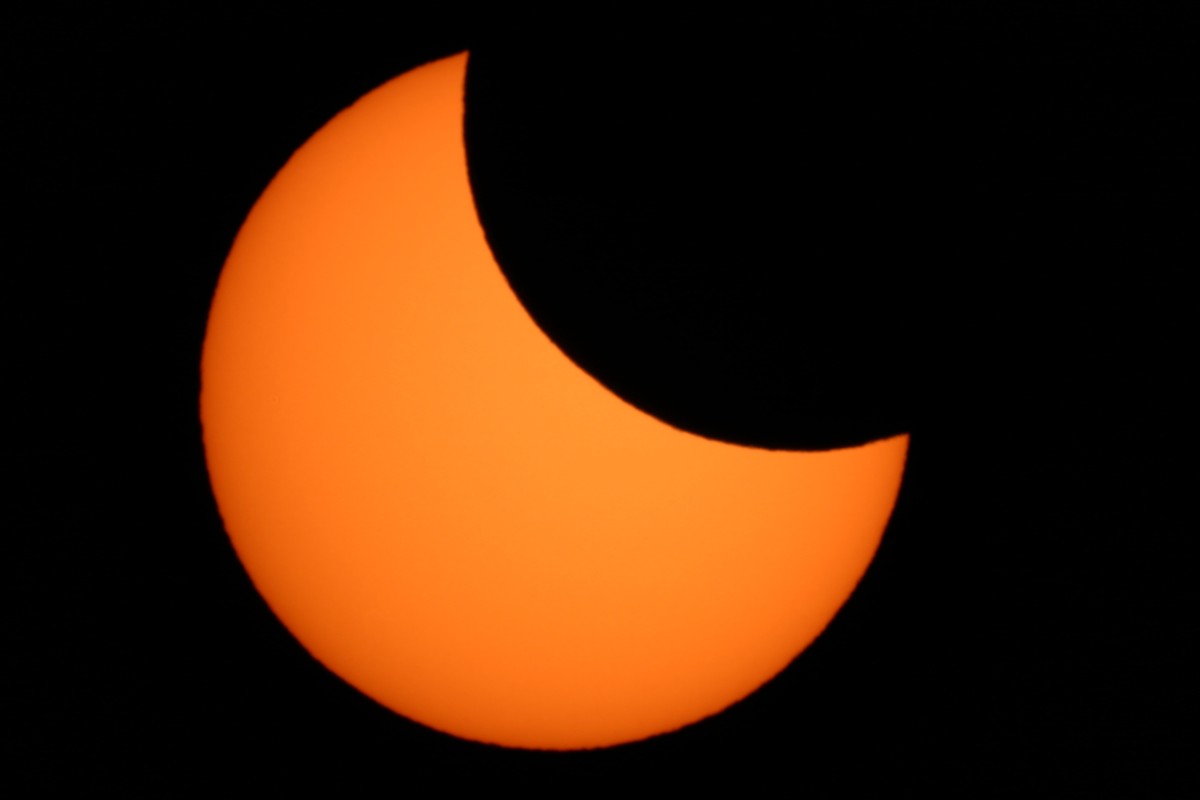 |
When occultation becomes sufficient, it's time to search for trees and photograph projections of crescents on the ground. Notice that the curvature of this little crescents is oriented to the extremity of the shadow.
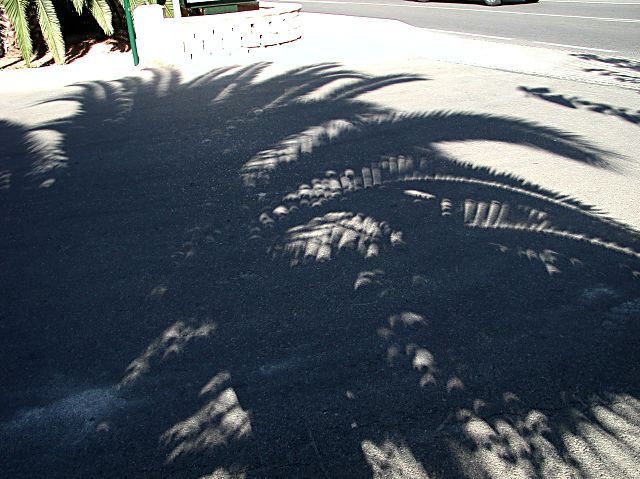 |
Second contact occurs at 9H 00m 24s UT and the amazing ring appears. Exposure time is 1/100th second at 200 ISO (click on picture to enlarge).
 |
At this moment the weakening of the ambient light is obvious. In spite of a 90% occultation, the sun remains blinding. Out of question to look at it without protection !
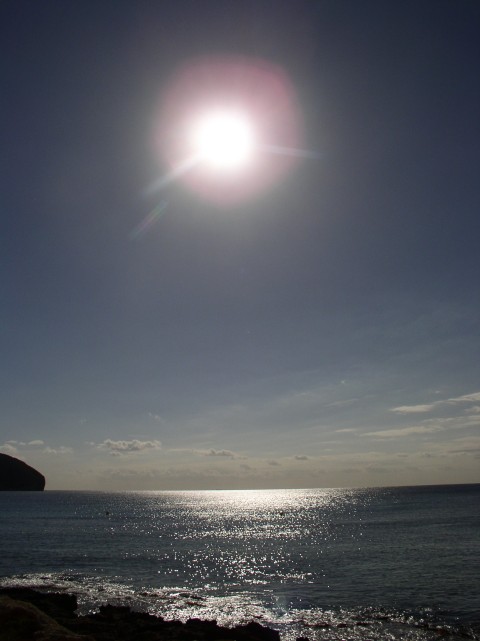 |
At 9H 02m 10s UT the ring becomes perfectly symmetrical. We are 5 kilometers from the central line. Exposure time is 1/100th second at 200 ISO (click on picture to enlarge).
 |
Beneath the vegetation, the show goes on .... The eclipsed sun is creating myriads of small rings, looking like the suction cups on a tentacle.
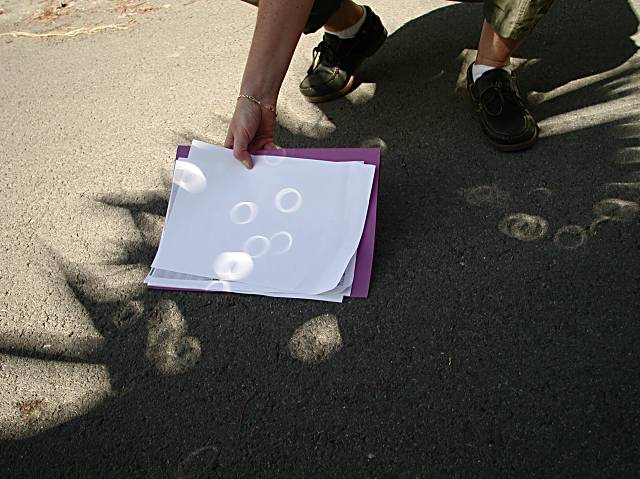 |
Third contact occurs at 9H04 UT and the ring opens. Exposure time is 1/100th second at 200 ISO (click on picture to enlarge).
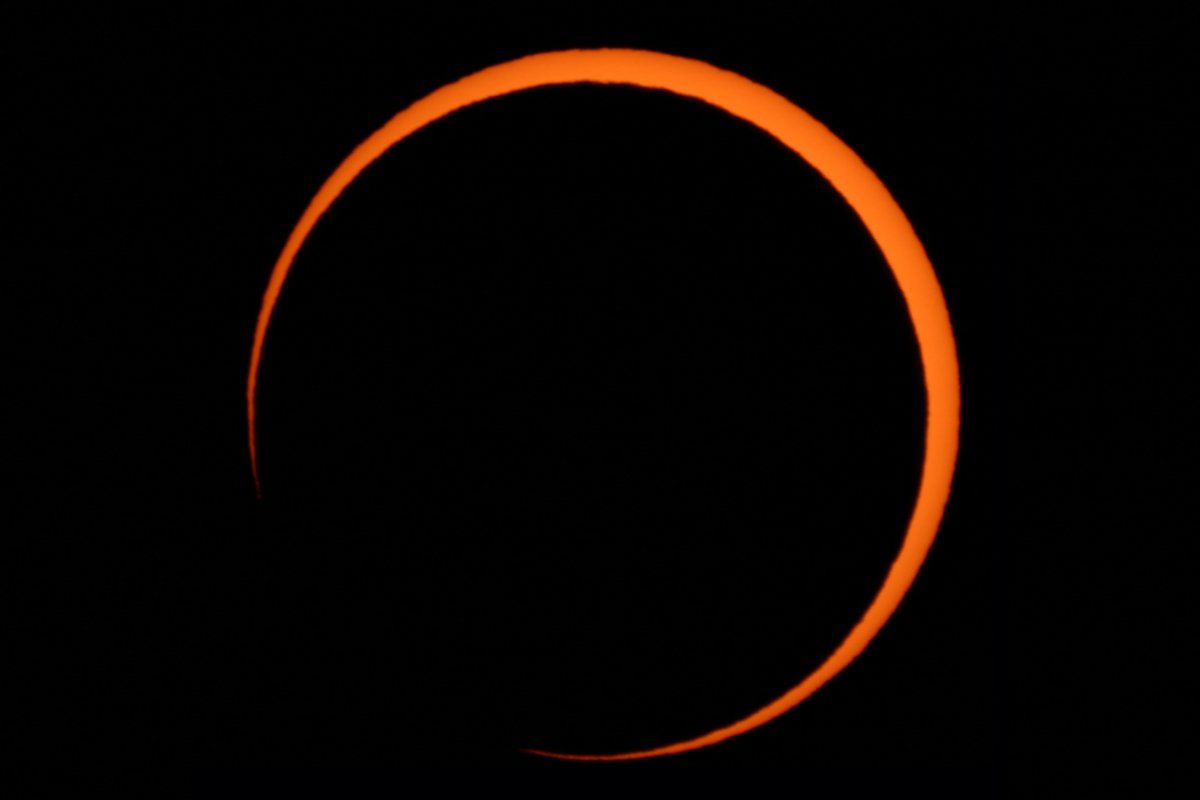 |
The solar crescent is now inverted. Let's look again at tree shadows ... After third contact the curvature of these little crescents is opposed to the extremity of the tree shadow.
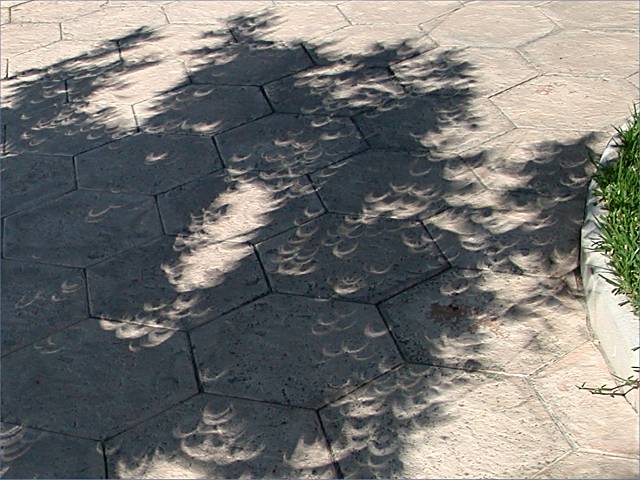 |
The last contact occurs at 10H30 UT and the perfectly smooth sun reappears entirely. Exposure time is 1/100th second at 200 ISO (click on picture to enlarge).
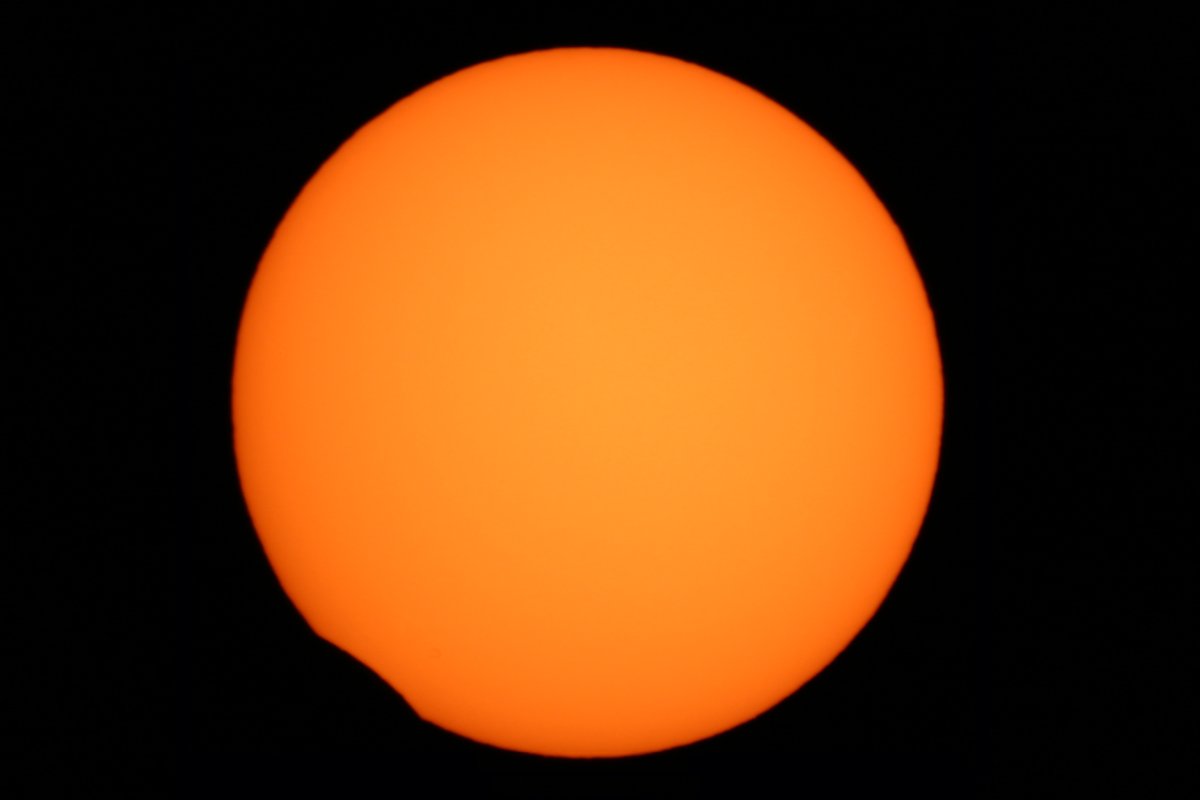 |
 Movie of the eclipse (768x512 .AVI format
in DIVX compression 532K)
Movie of the eclipse (768x512 .AVI format
in DIVX compression 532K)
Except during annular phase, pictures of this animation were taken every 2 minutes.
Other pictures were captured by Philippe Lopez who was a member of our group.